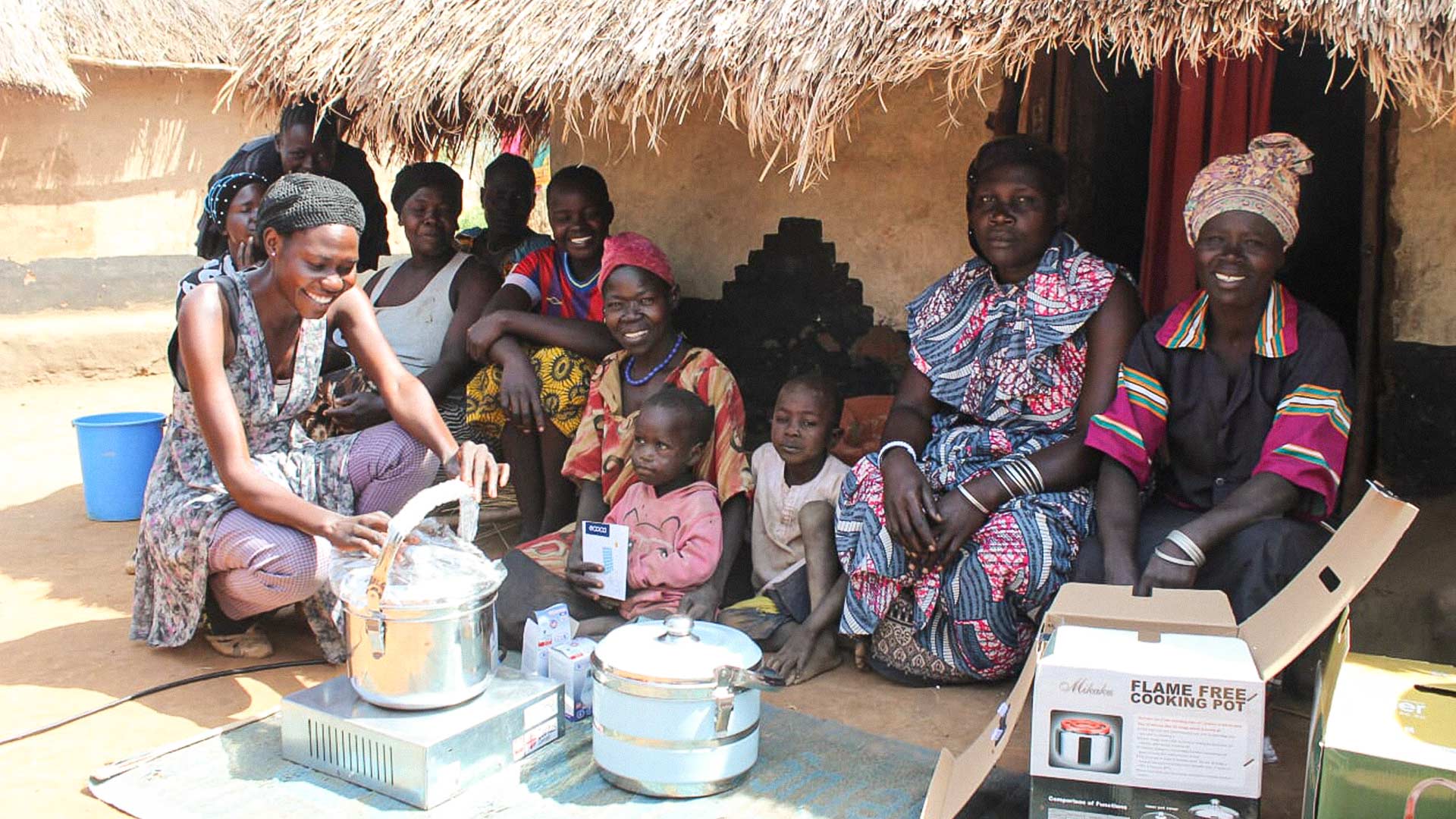The Bidibidi Refugee Settlement is located in northern Uganda and is home to more than 1.2 million refugees from South Sudan, Burundi and the Democratic Republic of the Congo.
This major influx of refugees is putting pressure on natural resources in the local area. The availability of firewood is a particular problem, since this is the primary fuel for cooking together with charcoal. The huge demand for firewood is leading to rapid deforestation and creates conflicts over resources in and around Bidibidi.
In a new project, Caritas Denmark will sell solar cookers in Bidibidi to combat the widespread deforestation that is occurring in this part of Uganda. The ECOCA cookers have been developed by PESITHO, a Danish start-up.
“United Nations agencies have estimated that the local area around Bidibidi will be totally depleted of wood resources by 2020. This is a major problem and requires new solutions that enable both local inhabitants and the refugees in Bidibidi to continue cooking without depleting natural resources. We will therefore give 175 families in Bidibidi the opportunity to buy an ECOCA cooker on credit at a price that will make it financially beneficial to switch from wood and charcoal to a solar-powered alternative,” explains Maj Forum, Programme Coordinator for Innovation, Caritas Denmark.
The 175 cookers will be sold to families in Bidibidi at a reduced price, with two thirds of the price paid by a financing model Caritas Denmark is developing. Each family pays about USD 150 for a cooker, which they will repay in instalments. According to Caritas Denmark, families will save money in the short and long term by investing in the cookers rather than continuing to use the limited natural resources for daily cooking.
“The USD 150 will be divided into instalments over 12–18 months. Our studies show that the monthly payments will be lower than the amount families spend on firewood, electricity and lighting every month. This is therefore a sustainable investment for the families in both the short and long term,” says Maj Forum.
Business opportunities built into the cookers
The project in Uganda is part of a wider initiative financed by Caritas Denmark under a strategic partnership agreement with the Danish International Development Agency (Danida). The Novo Nordisk Foundation has also awarded a grant of DKK 749,944 for the project, which is one of 20 humanitarian projects by Danish and international aid organizations to which the Foundation has awarded about DKK 15 million.
This new project by Caritas Denmark in Uganda aims to establish and test some funding mechanisms to ensure the wider use of ECOCA. One of these mechanisms is creating a revolving fund. This will be financed by the income that Caritas Denmark receives from the instalment payments for each ECOCA sold and by the income from carbon credits. The money can then be used to subsidize the purchase of additional ECOCA cookers, so that more families can benefit from this technology.
Another mechanism is implementing a smart-card system installed in each ECOCA cooker. The ECOCA can be used when the card is topped up. The payments, which comprise the monthly instalments of the ECOCA loan, will take place at a local shop where users can also obtain assistance in maintaining and repairing their ECOCA from locally trained employees.
In addition to local jobs related to selling and maintaining the ECOCAs, the project aims to enable families to develop business models using their ECOCA, which can be used for other things than cooking.
“Electricity is a resource people can produce and sell. The trials we have carried out in Bidibidi show that users have business opportunities by making their ECOCA available for charging mobile phones or other electrical devices such as hair clippers. Very few people have access to electricity, so families can either make money by simply offering a power source or building a larger business such as a hairdressing salon based on their ECOCA,” says Maj Forum.
Further information
Maj Forum, Programme Coordinator, Innovation, Caritas Denmark, phone +45 3818 0020, [email protected]
Christian Mostrup Scheel, Senior Press Officer, phone: +45 3067 4805, [email protected]








